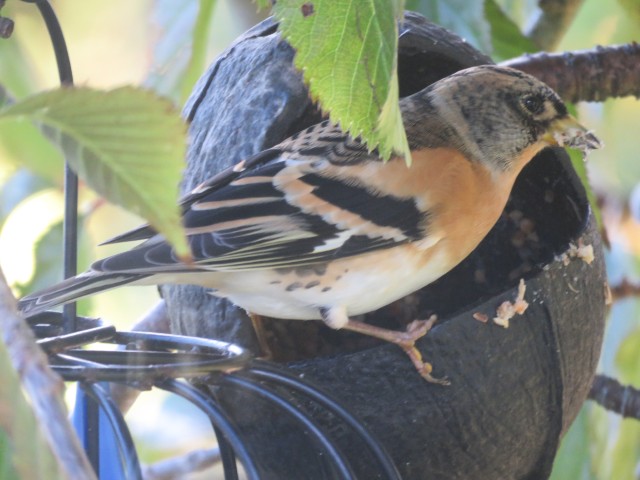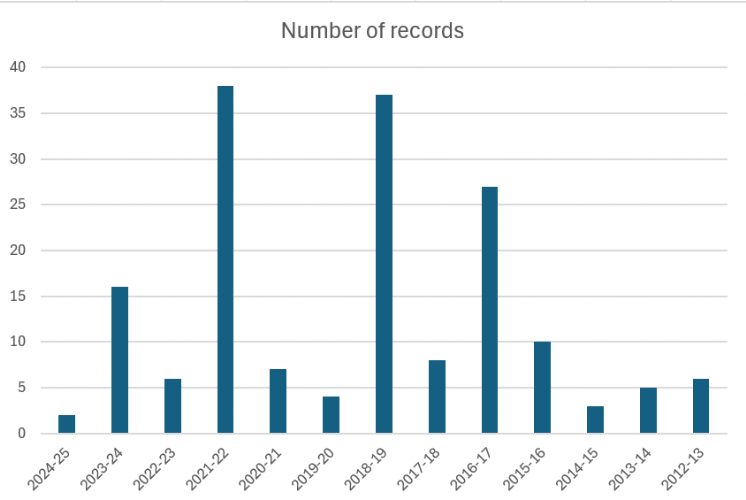Brambling Winter?
Reports

The Brambling is sometimes described as
the Chaffinch of the north, for in the pine and birch forests of Scandinavia it
seems to replace the Chaffinch as the commonest bird. In all plumages,
Brambling can be recognised by the obvious orange on the breast extending
across the shoulders onto their wings. In winter the head and mantle are
usually a blotchy grey-brown but in some birds these wear away to produce a
stunning black head, even before they depart back to their breeding grounds. In
flight they show a neat rectangular white patch down the rump as well as white
and orange in the wing.
All Brambling are migratory. They breed from Fennoscandia, through Siberia to Kamchatka and migrate to relatively warmer climates to winter in western and southern Europe, Turkey, Central Asia and northern India. In winter, vast flocks are formed where food is particularly abundant, for example seeds of beech trees. Some large roosts have been estimated to contain over ten million birds.
All Brambling are migratory. They breed from Fennoscandia, through Siberia to Kamchatka and migrate to relatively warmer climates to winter in western and southern Europe, Turkey, Central Asia and northern India. In winter, vast flocks are formed where food is particularly abundant, for example seeds of beech trees. Some large roosts have been estimated to contain over ten million birds.
The
number turning up in Scotland each winter varies greatly from year to year
depending partly on the successfulness of the breeding season and the
availability of food on the migration routes.
The graph shows the variation in the number of Brambling records on Arran in recent winters. In the winter of 2021-22 there were thirty-eight records with flocks of up to fifty birds and in the winter of 2018-19 there were thirty-seven records with flocks of up to twenty birds. Will this winter be a "Brambling" winter? There have already been several records this autumn in Arran plus a range of reports from the adjacent mainland so check the Chaffinch flocks around your area for this colourful winter visitor.
The graph shows the variation in the number of Brambling records on Arran in recent winters. In the winter of 2021-22 there were thirty-eight records with flocks of up to fifty birds and in the winter of 2018-19 there were thirty-seven records with flocks of up to twenty birds. Will this winter be a "Brambling" winter? There have already been several records this autumn in Arran plus a range of reports from the adjacent mainland so check the Chaffinch flocks around your area for this colourful winter visitor.
Enjoy your birding.
